- Stay Connected
 Abraham Lincoln
If given the truth, the people can be depended upon to meet any national crisis...
Abraham Lincoln
If given the truth, the people can be depended upon to meet any national crisis...
 Guildford news...
for Guildford people, brought to you by Guildford reporters - Guildford's own news service
Guildford news...
for Guildford people, brought to you by Guildford reporters - Guildford's own news service
Stage Dragon: Russian Tragedy Continues the Advance of Grange Park Opera
Published on: 21 Jun, 2021
Updated on: 21 Jun, 2021
By Alice Fowler
To arrive at Grange Park Opera’s Theatre in the Woods – past the magnificent façade of 14th century West Horsley Place, its formal gardens and lushly overgrown orchard – is to step into another world.
Inside this intimate theatre, discreetly built of brick and wood, GPO’s 2021 season – the ‘Spaced Season’, in reference to the pandemic – is unfolding. The varied programme features Verdi’s Falstaff, Puccini’s La Boheme, a new work, The Life & Death of Alexander Litvinenko, and – on the night I visited – Ivan the Terrible, by Russian composer Rimsky-Korsakov.
This expansive, tender and sometimes brutal production transports us from a bucolic English garden to 16th century Russia. Tsar Ivan the Terrible, reasserting authority over his country’s rebellious regions, is heading for the city of Pskov.
After seeing the neighbouring town of Novgorod subjugated and destroyed, the citizens of Pskov fear the worst. Among them is Olga, a beautiful young woman in love with the impassioned partisan, Tucha. As Olga learns that Prince Tokmakov, governor of the city, is not her real father, and a mysterious connection between her and Ivan becomes clear, the scene is set for a spectacular story of reunion and heartbreak.
Russian born soprano Evelina Dobracheva excels as Olga, whose emotional journey lies at the heart of Rimsky-Korsakov’s first opera. American tenor Carl Tanner convinces as the stalwart lover, Tucha, while British bass Clive Bayley brings magnificent, growling power to Ivan the Terrible. Also excellent is Russian mezzo-soprano Liubov Sokolova as Olga’s nurse, whose wonderful acting as well as singing convinces us that she, more than anyone, understands the truth.
Designer Francis O’Connor’s set is restrained and effective. A crown of bells overhanging the stage represents both Ivan and the Church, while a wooden, balconied backdrop suggests the traditional Russian house, the Terem. Against this subtle-hued design, the ensemble cast delights in traditional dress in vivid blues and greens.
In the third and final act, costumes change dramatically, from 16th century Russian to mid-20th century, as director David Pountney brings the action forward into modern times. Clive Bayley as Ivan is now clad in the type of buttoned, light-coloured suit favoured by Stalin. Ivan was notorious for murdering his own son, and we see him watch a silent film in which a father (the Tsar himself) beats his son to death. The brutal patriarchal ruler, we are reminded, is not confined to the 16th century but extends into the 20th, and beyond.
Conductor Mikhail Tatarnikov draws strong playing from the Gascoigne Orchestra (Grange Park Opera’s new ensemble, drawn from the former Garsington Opera Orchestra). Rimsky-Korsakov’s patterned score – with musical leitmotifs leading us through the action – brings another level of interpretation to this fast-moving tale.
Rimsky-Korsakov, a naval officer turned professor of music, conceived his opera in the 1860s, when presenting epic moments in Russian history was all the rage. This being a Russian story, we should not be surprised to find that any chance of happiness soon unravels.
Olga is happy to discover that Ivan – a man she has always prayed to and looked up to – is her father. Ivan, in turn, discovering his long-lost daughter, feels his anger at Pskov melt away. He stills his violent hand and the city is saved.
Sadly, this moment of tranquillity proves to be short-lived. Matuta, a wealthy older man to whom Olga has been promised in marriage, surprises Tucha and leaves him for dead. Somehow still alive, Tucha attacks Ivan’s encampment. In the resulting confusion, Olga herself is shot dead by the Tsar’s soldiers: reinforcing this work’s sinister message about patriarchal power.
In our socially distanced times, kisses are represented by finger-tips that strain to meet. In a love duet between Tucha and Olga, his hands hover above her outstretched body, proving that almost-touching can be just as sensual as the real thing.
Through successive lockdowns, GPO’s acclaimed director Wasfi Kani CBE (see also: Dragon Interview) has kept opera alive through free-to-view online productions. How wonderful for this innovative opera company to be back on stage for four live productions in the memorable surroundings of West Horsley Place.



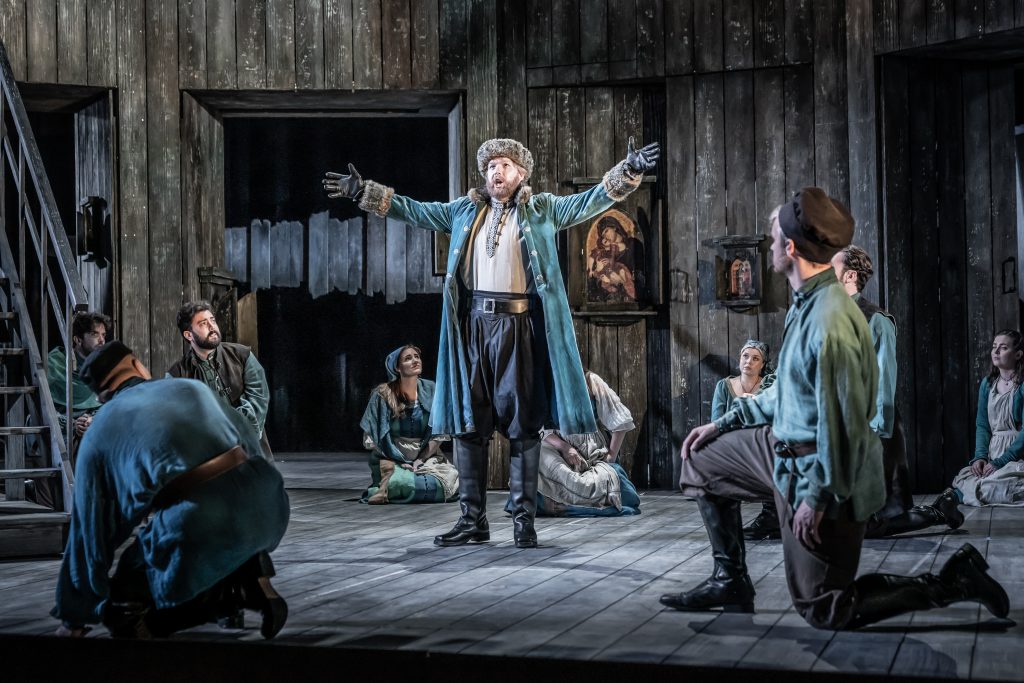
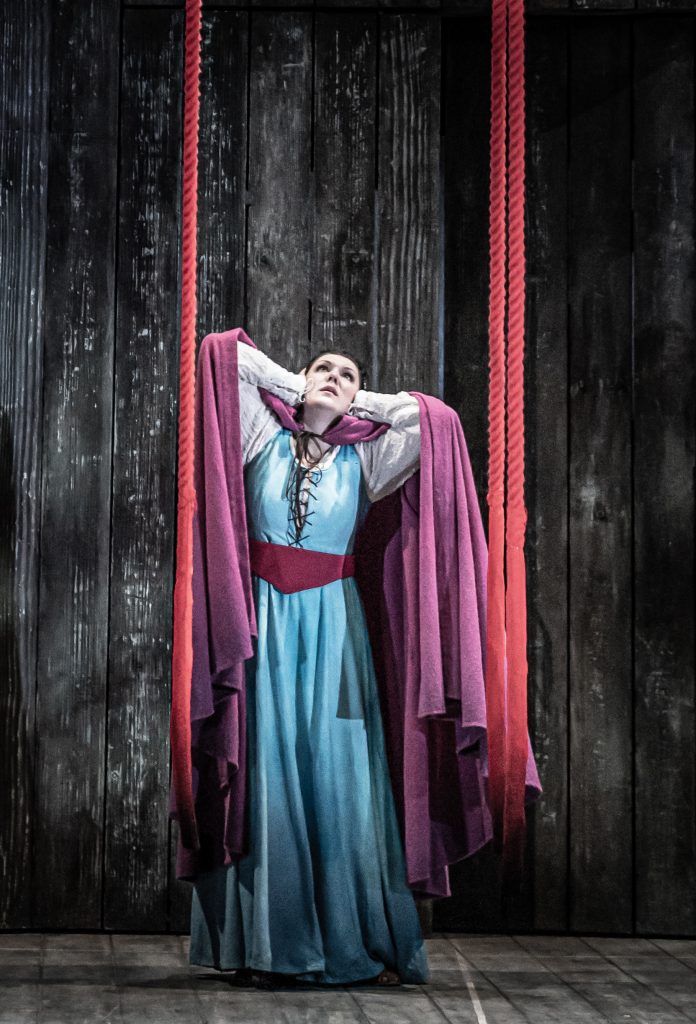
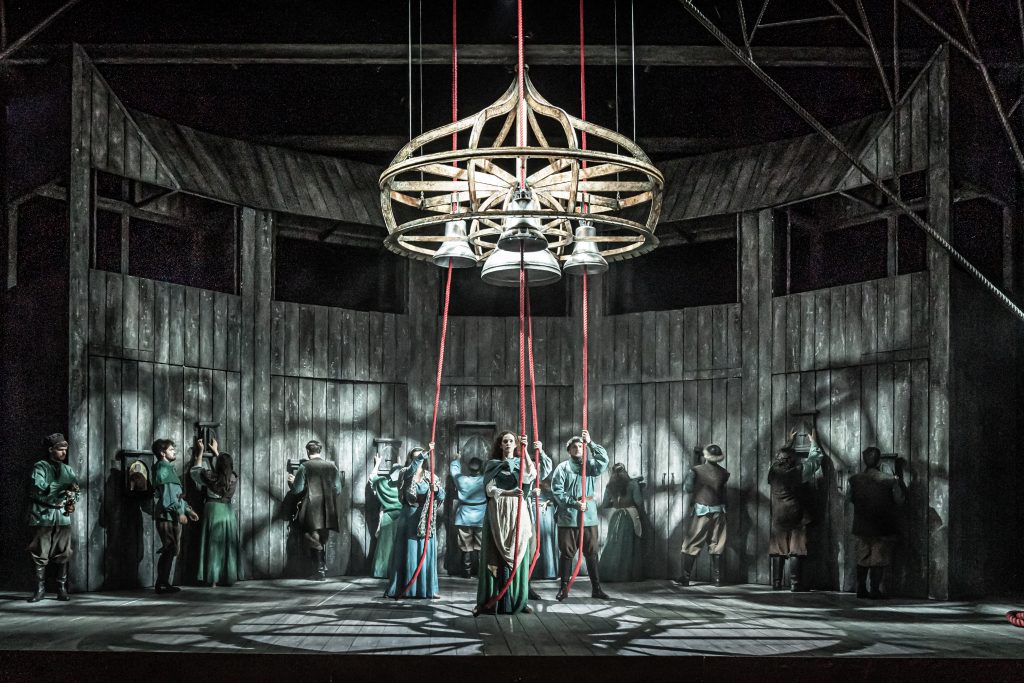
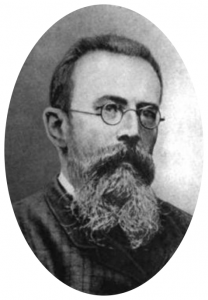
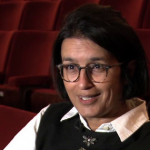










Recent Comments